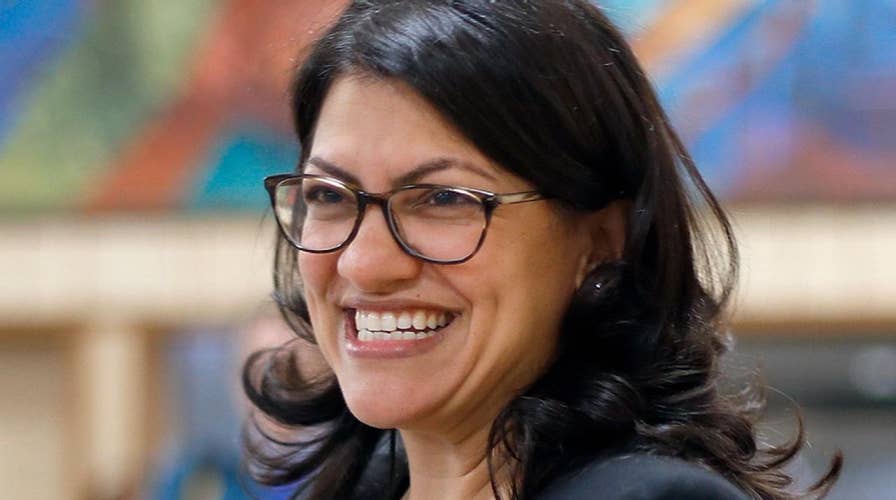Rashida Tlaib: most controversial statements
Rep. Rashida Tlaib, D-Mich., has never been afraid to voice her opinion. From her calls to shut down U.S. Immigration and Customs Enforcement (ICE) to her push to impeach President Trump, take a look back at her most controversial statements over the past two years.
Get all the latest news on coronavirus and more delivered daily to your inbox. Sign up here.
In an attempt to help ease the burden of the coronavirus pandemic on Americans, Rep. Rashida Tlaib, D-Mich., released a plan last week for what is essentially a temporary universal basic income (UBI) that would be distributed to all individuals in the United States, including illegal immigrants, and be funded by the printing of two $1 trillion coins.
"Hey @realdonaldTrump, let's provide relief from this crisis for people by giving pre-loaded debit cards to every person in America," Tlaib tweeted over the weekend. "No additional debt -- we'll just mint two coins."
The plan, outlined on Tlaib's website, would send a debit card with $2,000 pre-loaded on it to every person in the U.S. and reload it with $1,000 every month "until one year after the end of the Coronavirus crisis."
Tlaib's plan tracks closely along the lines of former presidential candidate Andrew Yang's UBI proposal that made his campaign extraordinarily popular with a niche audience. But like similar proposals to combat the coronavirus from Rep. Tulsi Gabbard, D-Hawaii, and Sen. Mitt Romney, R-Utah, Tlaib's handout would only be temporary, in contrast to Yang's $1,000 per month permanent UBI.
Tlaib would take advantage of an obscure provision in federal law that ostensibly allows the Treasury to mint commemorative coins to have the U.S. Mint make "two $1 trillion platinum coins" that would be purchased by the federal reserve "at full face value."
"This approach would preserve the historical separation between fiscal and monetary policy and avoid financial entanglement between the Treasury and the Federal Reserve which would eventually undermine the independence of the Fed," Tlaib's plan explains.
CLICK HERE TO GET THE FOX NEWS APP
The idea of minting trillion-dollar coins was discussed during the Obama administration when the U.S. faced default on its debt, but was never taken very seriously. It risks inflation, but more significantly, according to its critics, such a gimmick would not be a good look for the U.S. internationally.












































